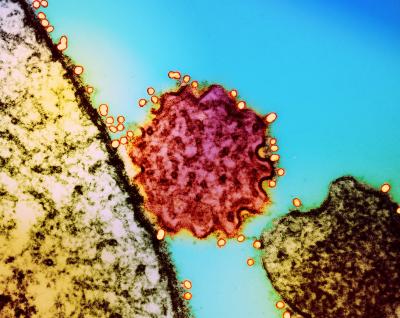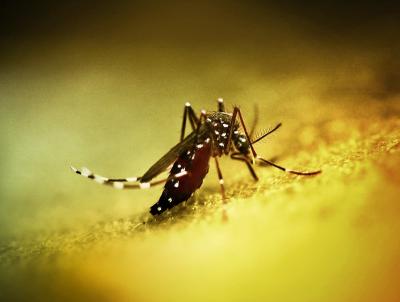This blog is cross-posted from HIV.gov.
The International AIDS Society’s 12th Conference on HIV Science (IAS 2023) opened Sunday, with thousands of scientists, policy leaders, and advocates gathered to present and discuss the latest advances in HIV research. HIV.gov’s coverage of the conference began with two video conversations looking ahead to the exciting research that will be presented.
Carl Dieffenbach, Ph.D., Director of the Division of AIDS at NIH’s National Institute of Allergy and Infectious Diseases (NIAID), spoke with Brian Minalga, M.S.W., about some of the presentations he’s looking forward to hearing at the conference, including the REPRIEVE trial results and the latest developments with both broadly neutralizing antibodies and long-acting drugs for HIV treatment and prevention. Brian is the Deputy Director of the NIH-supported Office of HIV/AIDS Network Coordination.
They also discussed the latest on mpox research, including the NIAID-supported STOMP trial. That trial is evaluating the efficacy of the antiviral drug tecovirimat, also known as TPOXX, for the treatment of mpox and is still enrolling participants. Both Carl and Brian will be joining HIV.gov for more conversations during the conference. View their first conversation below:
Also as the conference was opening, Catey Laube, Section Chief for HIV, STIs, Allergy, Immunology, and Transplantation in NIAID’s Office of Communications and Government Relations, spoke with Brian and Louis Shackelford, M.P.H., Acting Director of External Relations at the NIH-supported HIV Vaccine Trials Network and COVID-19 Prevention Network at Fred Hutch, about some of the issues and themes they are most interested in hearing about at the conference. Both Louis and Brian expressed interest in hearing about how communities are being engaged in HIV research and program implementation, ranging from the use of existing biomedical interventions for HIV prevention and treatment to the exploration of potential new tools such as broadly neutralizing antibodies (bNAbs) as well as in HIV cure research. View their conversation below:
IAS 2023, convening in Brisbane, Australia, features the latest advances in basic, clinical, and operational HIV research and seeks to move science into policy and practice. The conference features seven plenary sessions, more than 60 symposia and oral abstract sessions, hundreds of poster sessions, and many satellite sessions featuring highly diverse and cutting-edge research. Many of the studies that will be presented have been conducted by or funded by federal partners, including NIH, CDC, PEPFAR, DoD, and others.
As is custom in Australia, HIV.gov acknowledges the Jagera people and the Turrbal people as the Traditional Custodians of Meanjin (Brisbane), the land on which IAS 2023 is taking place. We pay our respects to Jagera and Turrbal elders past, present, and emerging.
Follow all of our conversations from IAS 2023 this week on HIV.gov’s Facebook, Instagram, and Twitter, and on the LinkedIn account of the HHS Office of Infectious Disease and HIV/AIDS Policy.



